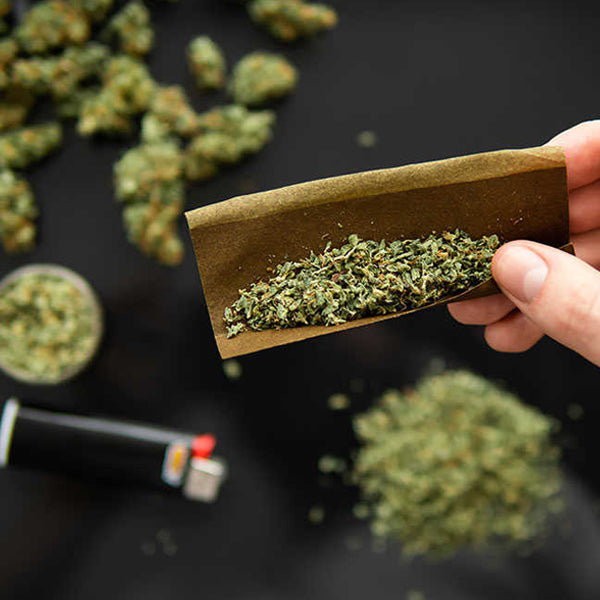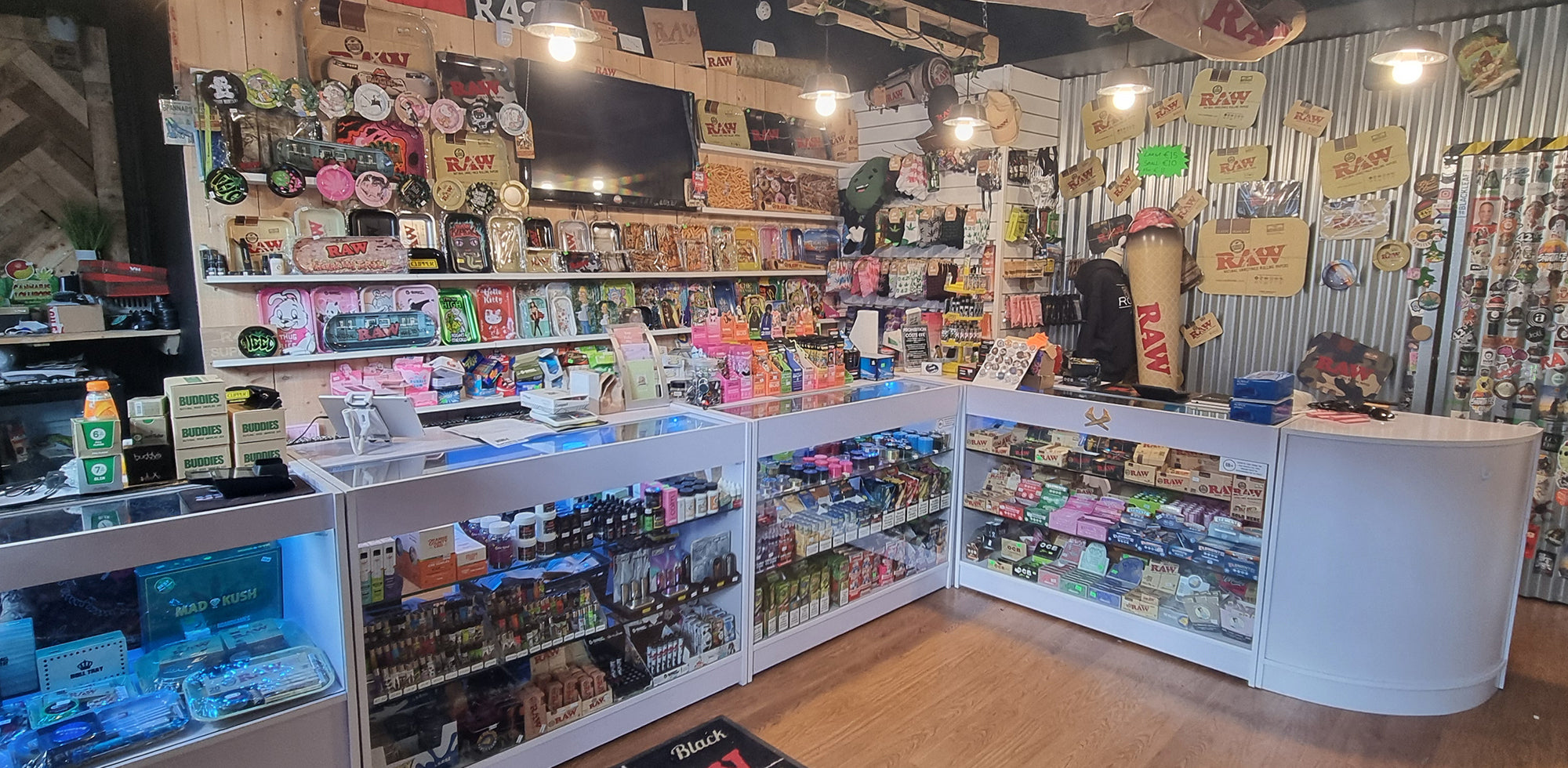On the morning of September the 21st, I attended the Medical Cannabis Symposium in the University of Limerick. A large group of Cannabis patients, advocates and industry professionals gathered in the lecture room to learn more about where Ireland stood, since the Government announced in June that it's legalising Medicinal Cannabis use for certain conditions. The Symposium was co-organised by Alicia Maher, a PhD Student in UL and Gino Kenny TD (Member of Irish Government)

The first speaker of the day was David Finn, an NUIG Professor of Pharmacology and Therapeutics, Science Foundation Ireland Principal Investigator, Co-Founder and Co-Director of the Centre for Pain Research, Leader of the Galway Neuroscience Centre and President of the International Cannabinoid Research Society.
Professor Finn spoke about the effects of chronic pain on individuals, how these conditions effect their lives and how, despite the HPRA not allowing it in our Medical Cannabis Access Program, relief from chronic pain is the most used reason for patients using medical cannabis. He shared some startling facts, like how 1 in 5 people in Ireland suffer from chronic pain, with 1 in 6 losing their job because of it. Also, 40% of chronic pain patients say their pain medication is inadequately managed. This represents a large number of people in this country who are suffering on a daily basis. He went on to explain how the Endocannabinoid System works, where the receptors are located and how they dampen pain and reduce inflammation. He spoke about the studies being carried out in the field of Neuropathic Pain and the need for scientific reviews of the evidence of cannabinoids. He also highlighted the reduction in opioid overdoses and deaths in US states where medicinal cannabis is legal.
I was personally surprised at the level of Cannabinoid research that's being carried out in Ireland. We're currently researching Cannabinoids in 4 of our third level institutions, have published 140 peer-reviewed papers and have received €8million in grant funding. This seems appropriate, as the man who first brought Cannabis to western medicine was an Irish man, Dr. William Brooke O'Shaughnessy who was born in Limerick in 1809. Next year NUIG will host the International Cannabis Research Socity's Annual Symposium on Cannabinoids, with over 600 delagates travelling from all over the world to this week long event.

The second speaker and co-organiser of the event was Alicia Maher, a UL student of Law who's doing her PhD on The Regulation of Medicinal Cannabis in Ireland. Alicia spoke very openly about her own medical background, starting from an operation at the age of 17. Her life had been an agonising journey trying all sorts of treatments and medications with no relief.
She was introduced to Medical Cannabis and found instant relief, so much so that over the following weeks she began coming off her pharmaceutical medications, but that presented its own nightmare because of withdrawals.
Alicia's GP applied on her behalf for a Medical Cannabis License in May 2019, but despite all the evidence surrounding the use of Medical Cannabis for the treatment of chronic pain, this was refused. She stressed that now is the time to consider Medical Cannabis as an alternative to opioids and other pharmaceutical drugs.

Adrienne Dempsey was next to speak. She's the mother of Irish singer Damien Dempsey and she told her story of living with chronic pain and Fibromyalgia for the past 15 years. She spoke about trying every medication and the horrible side effects that came with them, as well as the fact that they weren't working for her. During a visit to a legal Cannabis state with her son Damien, she tried Cannabis and was amazed at the relief it gave her, without any of the side effects. It's not only effective at managing the pain, but it's also improved sleep and relaxation.
Unfortunately, like many others, Adrienne can't access Medical Cannabis in Ireland, so she's having to leave this country and her family behind so she can live somewhere that she can access Medical Cannabis without fear of repercussions.

The last speaker in this first section was Claire Mc. Fee, who suffers from Interstitial Cystitis, a condition that causes chronic inflammation of the bladder, resulting in constant agonising pain. Claire read out the account of a friend in the US that suffers from the same condition. Her friend visited her doctor and asked about using Medical Cannabis to control her pain. 7 days later she had her approval and the doctor gave her a prescription, which she then took to a Cannabis Dispensary and discussed the best form of medicine to suit her. Her friend couldn't understand why there was such obstruction to Cannabis in Ireland.
It was during treatment for her condition in Colorado, that Claire first tried Medical Cannabis. She walked into one of the many dispensaries there and told the assistant what she wanted to get relief from. She went away with a few types of products to try, and after some trial and error, she found her relief with a transdermal patch that she bought over the counter for only $6. The instant relief was so great, that she recounted sitting comfortably to read a book and browsing the shops, things she hadn't been able to do in years.
Claire has had to endure painful brain surgery this year and had to return to the pharmaceutical medications and all their side effects. She pleaded for patients like her to be given the choice of what medication they take. To be able to go to your doctor and tell them you want to try Medical Cannabis, and have them support your decision.

The same sentiments were echoed from all three women. They're tired of having to suffer when they know a better option is out there. They have all tried the conventional and non-conventional treatments and medications and they know what works for them and should have the right to use their medicine of choice without having to leave the country.

After a short break, Gino Kenny TD came to the podium to announce the next group of speakers; Parents for Greater Access. Sitting on stage were Karen Gray, Hannah Deacon and Vera Twomey, 3 mothers of children with rare genetic conditions, that have made remarkable progress thanks to Medical Cannabis.
Gino applauded the individual and collective work of these women in helping to change public perception and government legislation around Medical Cannabis here and in the UK.

Hannah Deacon was the first of the three mothers to speak, her son Alfie was the first recipient of a license in the UK. Alfie suffers from a very rare form of epilepsy and is one of only 9 boys in the world with the condition. His seisures started at 8 months old, from this point his health quickly deteriorated and he spent much of the time in hospital. Hannah described the different medications that they tried and each with their own horrible side effects. By the age of 5 he was being brought to hospital by ambulance on a weekly basis, the doctors told Hannah that her son was likely to die from one of these seisures or from a heart attach brought on by the steroids.
At this point Hannah started to research alternative options and came across Medical Cannabis. When she brought it up as an option with Alfie's Neurologist, she was threatened with being reported to social services. In September 2017 they we left with no option but to travel to Holland and seek medical assistance there. They moved to The Hague and met with a doctor who started Alfie on Medical Cannabis. For the first 5 weeks there was no improvement, then at 150mg he went 17 days without a seisure. They remained in Holland for 5 months, but ultimately had to return home. In February 2018 Hannah went on BBC Breakfast and made her appeal to the British Government which gained massive public support including a petition that Hannah gave to the Prime Minister. They were promised their license on the condition that they refrained from speaking to the media. After months of silence, Hannah had to resort to the media once again. This time it worked and they received their permanent license for Alfie in June 2018.
Although the law has since changed in the UK, access to Medical Cannabis hasn't. There have been no prescriptions given out on the NHS and patients are having to spend thousands a month on private prescriptions. Hannah stressed that anyone should be able to access Medical Cannabis as a treatment option and also have the option to grow their own and not have to continue to rely on the Pharmaceutical Industry.

Next to the podium was Ireland's Very Twomey. Vera has been campaingning to get Medical Cannabis for her daughter Ava, who suffers from Dravet Syndrome, a rare form of epilepsy. She said it was an honour to speak about Medical Cannabis in the University, that it felt like a step in the right direction. Vera described their own journey trying to get a license for Ava here and how the government continued to move the goalposts making the application process almost impossible.
She spoke about their own time in Holland, and how shocked the medical staff were when she told them that the doctors in a University Hospital in Ireland wanted to perform brain surgery on Ava without even entertaining the option of Medical Cannabis. She compared the medical systems of the two countries to candle light versus the electric lightbulb. She also commended the earlier speakers of the day, who she described as “rational, decent, honest people”, unlike the American author, Alex Brenson, who had given a talk to the Royal College of Surgeons earlier in the week. Vera voiced her anger at “clowns” like Alex being given a platform by the Medical profession here in Ireland. She called on the need for more Cannabis education for our Consultants and Doctors and pledged to keep fighting to get this over the line.
She informed us that Ava has gone back to school in Macroom and is doing fantastic, having only missed 2 days this year, something that was unthinkable only a couple of years ago. Vera has written a wonderful book about their incredible journey and hopes that this story will spread and more people can open their eyes to different treatment options and help make the changes no so that more children don't have to suffer needlessly.

The last of the three speakers was Karen Gray, her Son Murray has received a Medical Cannabis license, but the NHS are still refusing to cover the cost of his medicine. Karen presented a slide-show of Murray's journey up to now, starting life as a healthy baby boy with no signs of his condition till he started pre-school around the age of 3. This is when his seisures started and their frequency increased over the next 2 years to the point that by January 2018, he was having up to 12 a day. Murray spent most of 2018 in hospital, where his condition continued to get worse and so did the side effects of the medication, one of which being a 2 stone weight gain due to the steroids. Karen started her campaign to get Medical Cannabis for Murray in March 2018 and quickly had 270,000 signatures of support from the public. While they campaigned, Murray's health continued to deteriorate, he was wheelchair bound and spent most of his days in a hospital bed. At this point Karen couldn't stand by any longer and watch her son suffer, so she went to Holland herself, found a Doctor and brought back Medical Cannabis Oil which she began to administer to him herself behind the hospital curtain. Murray's seisures immediately began to regress and as of June 7th he is seisure free. He's loving life and is getting on great in mainstream school with all his friends.

All three stories share the same heartbreak and suffering of a child, suffering that for these children at least, can be eased with Medical Cannabis. They also share the fight and determination of a loving parent and show that 1 person really can make a huge difference. These children and their stories have helped to change public options and perceptions around Cannabis, but more kids continue to suffer.

The third part of the day was the Panel Discussion. This was chaired by Madelenine Johansson and she began by introducing each panel member before asking them a question.
Professor Mike Barnes, a prominent advocate for the medicinal use of cannabis in Britain, was asked about what's changed in the UK since they legalised Medicinal Cannabis. According to the new laws in the UK, Cannabis can be prescribed for any condition, ,making it quiet liberal compared to other European countries. In practice though it's a very restricted program, with no NHS prescriptions and only 28 from private consultants. It's estimate that 1 million use Cannabis for Medicinal use on a daily basis, with almost all of these having to access it illegally. Professor Barnes said that although the government can't force the doctors or consultants to write the prescriptions, there's a lot they can do to make it easier. He also called on doctors to take more personal responsibility and to become educated in Cannabinoids and the Endocannabinoid System. He said the UK needs better guidelines around prescribing Cannabis, that they can't continue to ignore the hundreds of studies on Medical Cannabis for pain. He said the current system, with all prescriptions coming from private consultants, is unaffordable, but he believes that by this tine next year Cannabis will be available on the NHS.

The next question was put to Gino Kenny TD, Gino was instrumental in proposing legislative change in Ireland for Medical Cannabis. Gino's question was similar to that for Professor Barnes, since the Irish Government announced its own Medical Cannabis Access Scheme back in June, what has changed for Irish patients? Unfortunately the answer is much the same as with the UK, not a lot. Although we have the new {Misuse Of Drugs (Prescription And Control Of Supply Of Cannabis For Medical Use) Regulations 2019} which was introduced back in June 2019 and this underpins the Medical Cannabis Access Program, the vast majority of people that need it still won't get access. Gino stated that the Government has got multiple suppliers arranged and outlined the 3 conditoins that are currently covered;
- spasticity associated with multiple sclerosis;
- intractable nausea and vomiting associated with chemotherapy;
- severe, refractory (treatment-resistant) epilepsy.
With the current law, if a consultant feels the Medical Cannabis will be beneficial to the patient, they can prescribe it, but this doesn't seem to be happening at the rate that's needed. Gino has comitted to bringing this up in the Dáil over the next 6-9 months in the lead up to the next general election. He also wants to see the scheme extended to cover those who suffer with chronic pain, he acknowledged that it's a complex diagnosis and suggested looking at Denmark's model, that convers Neuropathic pain conditions. He said that while public perception and even government option has changed, we're still at the mercy of an ultra conservative medical profession in this country.

Next on the mic was Dr. Gareth McGovern, a GP specialising in addiction treatment in Dublin. He was asked why the medical profession seem so opposed to Medical Cannabis here. He said that while at college level there seems to be a shift in attitude, especially with the establishment of groups like; Students for Sensible Drug Policy, however, he repeated the earlier point, that doctors are very conservative and the medical profession can't get their heads 'round recognising a medicine that's only ever been known for its recreational use. He said there's an attitude and stigma around recreational Cannabis users and this is stopping the medical profession from giving it serious consideration. They don't want it investigated, they've no interest in it and want it to go away. Dr. Mc. Govern called on the government to start taking advice about Cannabis and its uses from the right people.

Peader King is a documentary film maker, who's work has covered the global war on drugs and Cannabis Legalisation in Uruguay. Peader discussed how we talk about Cannabis, the language used and our rights as citizens to have access to institutions of learning to openly discuss Cannabis without any stigma. He said there are 2 types of knowledge that are needed in the debate and discussion around Cannabis;
- Professional Knowledge
- Experiential Knowledge
He said we need to hear both in terms of shaping and changing the law, that we need experts and lay people's to come together and learn from each other. He's seen himself how Uraguay became the first country to fully legalise Cannabis use in 2013, despite the opinions of the UN Government Council. They showed how progress can be made by having diverse participants engaging in these issues.

Tom Curran has long been a Medical Cannabis Activist in this country and spent over 20 years growing and processing it to treat his wife's MS. He described it as the “best medicine she could ever have” He described the current laws in this country as a disgrace, and said we need to put the power back in people's hands. He doesn't have faith that the medical community are best left to sort this out, that they need the knowledge about growing and treatment that only the parents, carers and Medical Cannabis patients understand.

The main message to bring away from this Symposium is that Cannabis Medicine can work, not for everybody, but more people need to be given the opportunity to try it for themselves. There's growing acceptance amongst the general public towards Cannabis and its use both Medically and Recreationally. The government are even on board to some extent. The real bottleneck seems to be our medical profession, this leaves us with two options;
- wait till the medical profession recognise the use of Cannabis as a medicine and allow patients the option to choose it
- go for full legalisation and allow a Cannabis Dispensary to operate where patients can go in and speak with a trained staff member who can help them to choose the best product to suit them.
Whatever happens over the next 12 months and more, Cannabis is not going away. The cat's out of the bag and nobody is getting it back in!! The longer we drag out this debate, the more people will suffer and die. It's time to give people the choice, even if it's not your personal choice of medication, that doesn't mean someone else should go without.
Kevin




